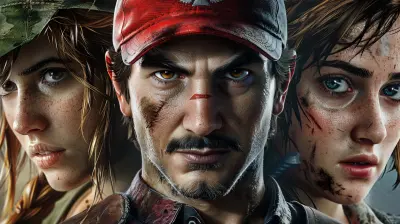How to Get Better at Puzzle Games: Expert Advice and Hacks
30 June 2025
Let's be honest—the first time you get stumped on a puzzle game, it can feel like your brain suddenly locked the doors and tossed the keys out the window. Whether you're solving digital jigsaw puzzles, cracking Sudoku grids, or untangling mind-bending logic games like The Witness or Portal—puzzle games demand more than just time. They require strategy, patience, pattern-recognition, and a healthy dose of stubborn determination.
But here's the good news: getting better at puzzle games isn't about being a genius. It's about sharpening your problem-solving muscles, learning how to break down challenges, and yes, sometimes leaning on a few clever hacks. So grab your mental toolkit—we're diving into some expert advice and down-to-earth strategies that'll boost your puzzle prowess in no time.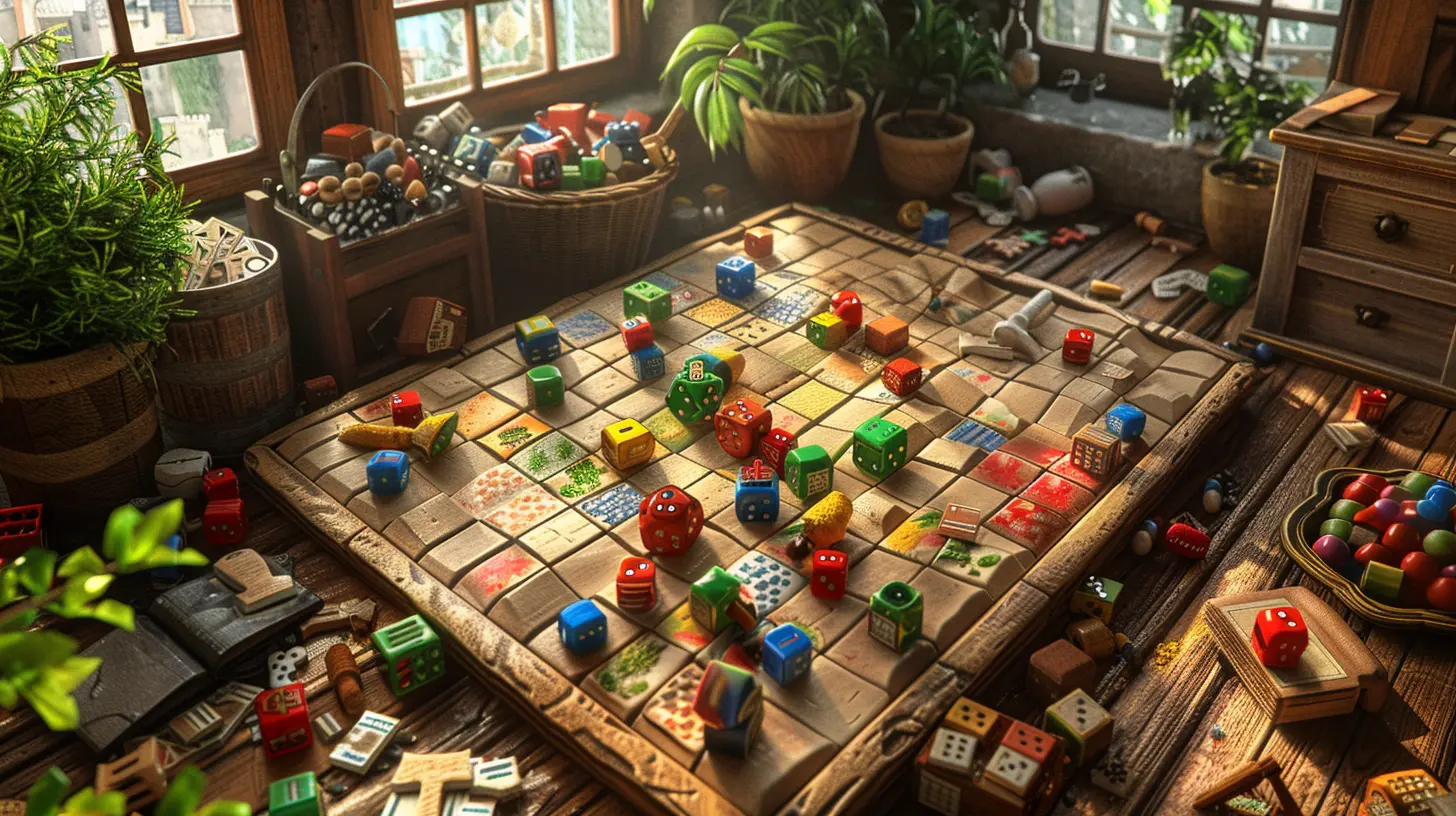
Why Puzzle Games Are Actually Good for You
Before we get into the how-tos, let’s take a second to admit something: puzzle games are pretty awesome for your brain. They’re like mental gym sessions. They boost cognitive function, improve memory, enhance spatial awareness, and even reduce stress (after the rage-quits, of course).You’re not “wasting time” when you're hooked on Baba is You or Tetris. You’re training your brain to think logically, spot patterns quicker, and make smarter decisions. Pretty cool, huh?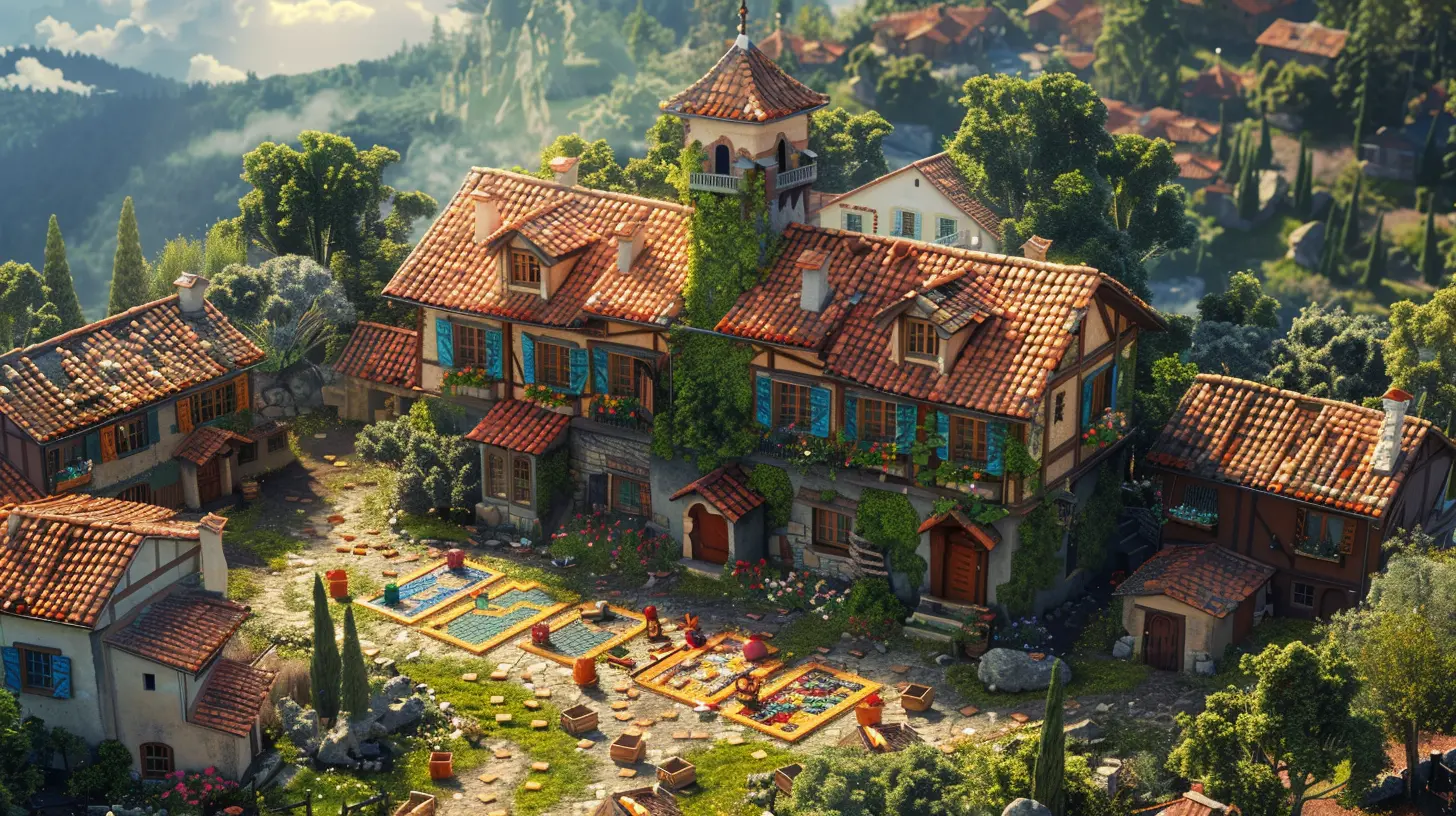
Step 1: Start with the Right Mindset
If you’re serious about getting better at puzzle games, the first thing you need to fix isn't your strategy—it’s your mindset.Embrace the Struggle
Puzzle games are designed to trick you, delay your progress, and occasionally make you question your life choices. And that’s the point. Struggling means your brain is working through something new. It’s all part of the process.Think of it like lifting weights. You won’t get stronger if the workout is too easy. Likewise, easier puzzles are great for warm-up, but the tougher ones are where your skills actually grow.
Stop Rushing
Puzzle games reward patience, not speed. Don’t try to speedrun a logic game unless you're deliberately gunning for that challenge. Slow down. Analyze. Let your brain marinate in the problem for a bit.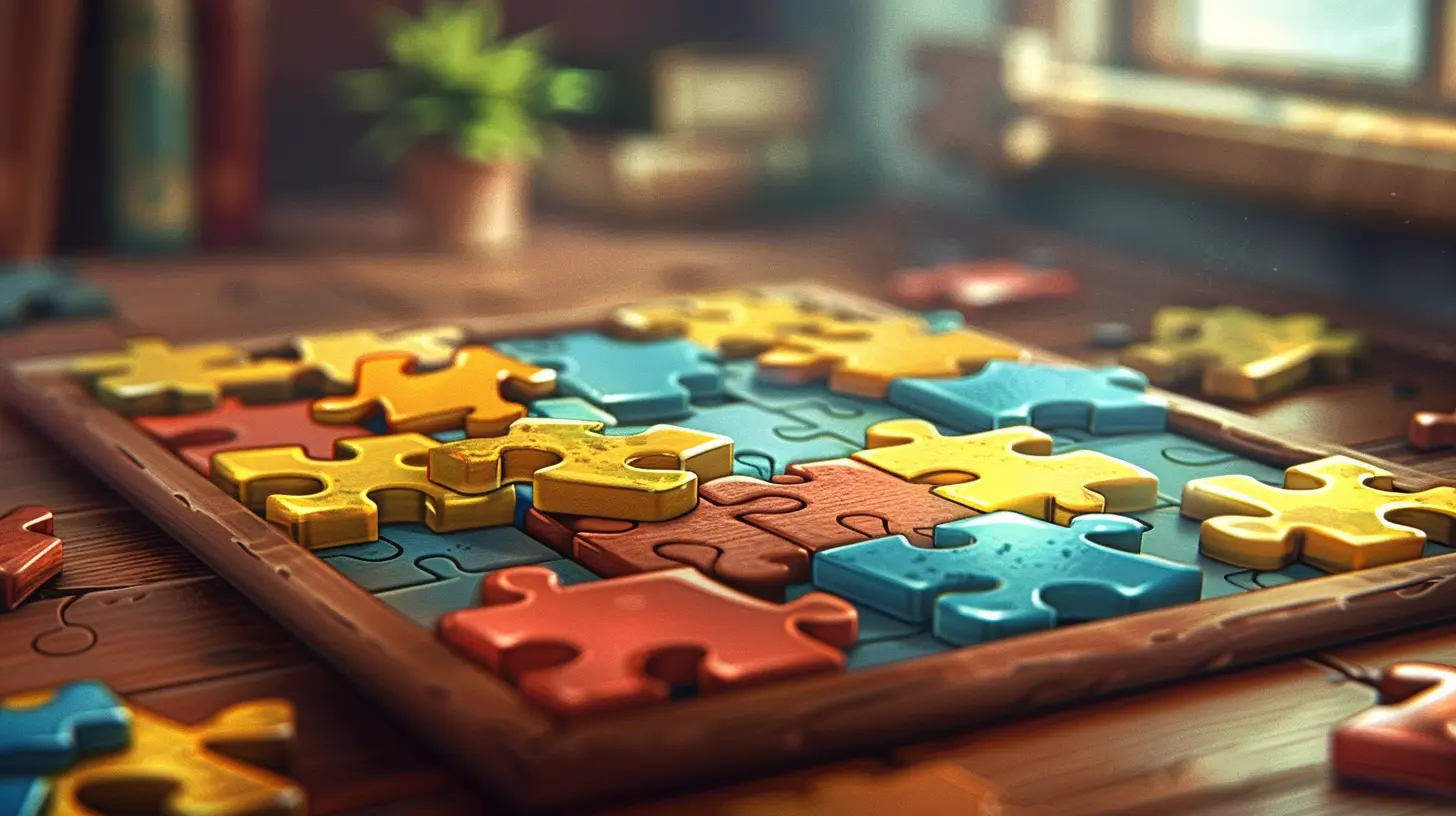
Step 2: Recognize Patterns
Most puzzle games are just pattern recognition in disguise. Whether it’s tile matching, number placement, object manipulation, or maze navigation—under the hood, there’s almost always a pattern.Train Your Brain to See Patterns
You can actually get better at noticing patterns. Start with simple games like 2048 or Match-3 titles (think Candy Crush) and try to focus less on winning quickly and more on what visual or structural patterns emerge.Once your brain’s comfortable spotting familiar frameworks, tougher puzzles become less intimidating.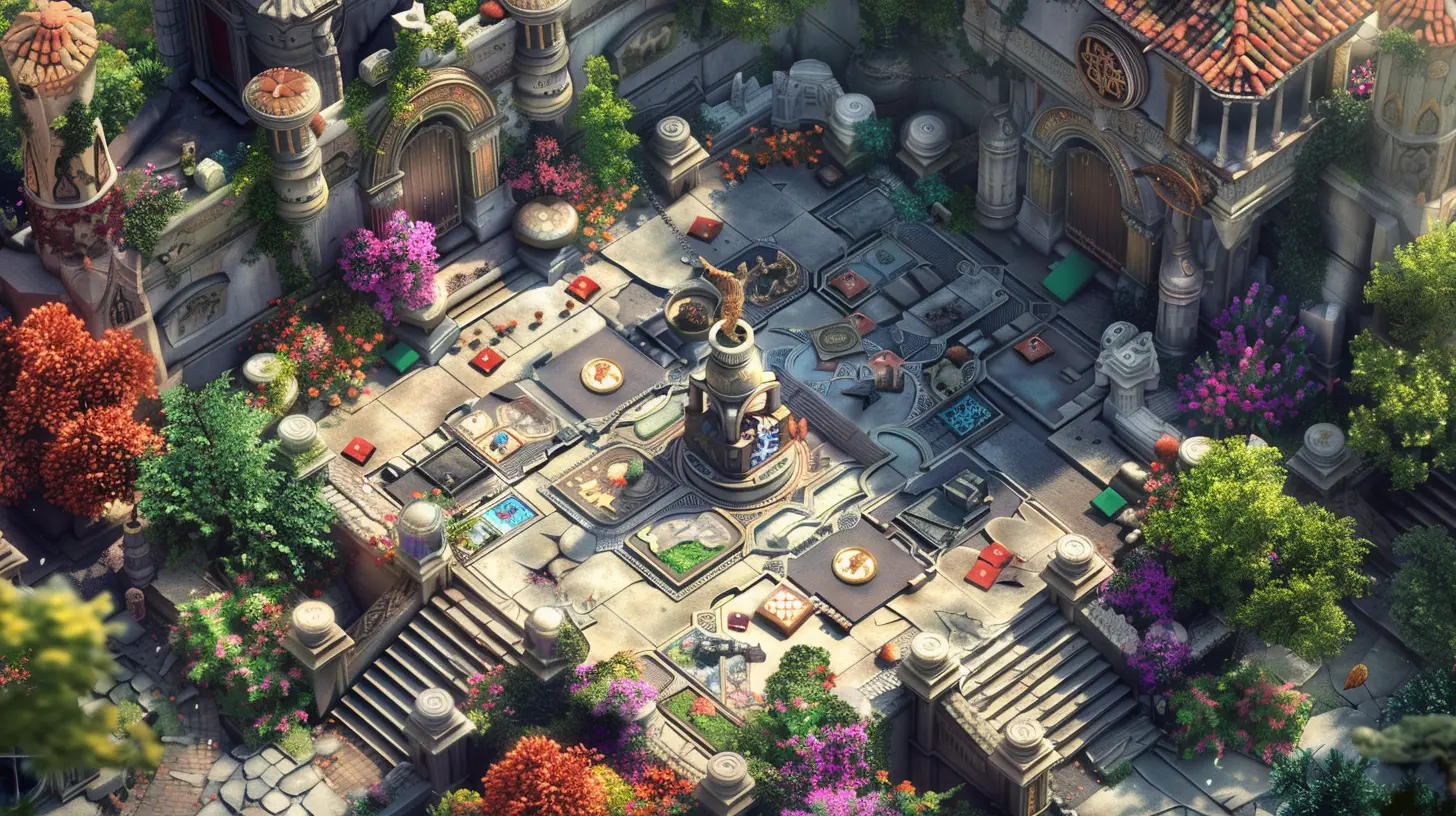
Step 3: Learn Game Mechanics Inside-Out
Every puzzle game has its own internal logic. The sooner you wrap your head around the game mechanics, the better you’ll perform.Read the Rules (Seriously)
It sounds obvious, but so many players jump straight in and skip the tutorial or instructions. Understanding the rules isn’t “cheating”—it’s equipping yourself with the tools to win.If you're playing games like Sudoku, Minesweeper, or Picross, knowing the rules is half the battle. The other half is mastering them.
Play Around With Mechanics
Don’t just play the game—experiment with it. Try things even if you think they won't work. Often, the "aha!" moment in puzzle games comes from stumbling on a mechanic you hadn’t fully grasped before.Step 4: Break the Puzzle into Chunks
Tackling a big, complex puzzle can feel overwhelming. Your brain screams, “Too much! Shut it down!” Don’t let it.Use the Divide and Conquer Tactic
Take the puzzle apart mentally. Identify smaller sections or components you can solve independently. For example:- In Sudoku, focus on solving just one 3x3 square.
- In jigsaw puzzles, start with the edges.
- In mazes, trace from the end backward instead of the start.
Breaking the puzzle down makes it manageable—like eating a pizza one slice at a time instead of trying to, uh, inhale the whole thing.
Step 5: Think Several Moves Ahead
The more advanced puzzle games are less about reacting and more about planning. It’s like chess—every move you make affects the next five.Visualize Outcomes
Before you make a move, pause and imagine what the result will be. Ask yourself: “What happens if I do this?” If you can mentally simulate a few steps ahead, you’ll avoid traps and dead ends more often.Step 6: Keep Track of Your Progress
Especially in longer, multi-stage puzzles, it’s super helpful to take notes—mental or physical.Use Scratch Paper or In-Game Tools
Drawing out a puzzle structure can sometimes make the solution crystal clear. Games like The Talos Principle or Return of the Obra Dinn actually encourage this kind of thinking.It’s like being a detective—don't just look at the clues, write them out, connect them, and keep track of what you’ve tried (and what didn’t work).
Step 7: Don’t Be Afraid to Fail
Here’s your permission slip: it’s okay to fail. In fact, failure is a built-in feature of puzzle games. You're supposed to mess up, learn from it, and try again.Failure = Feedback
Every failed attempt gives you info you didn’t have before. It’s not wasted effort—it’s research.Pro tip: If a puzzle is really driving you up the wall, walk away. Take a 10-minute break, do something else, and come back with a fresh perspective. You’ll be shocked how often the solution suddenly appears after you stop staring at the screen.
Step 8: Practice Specific Skills
Puzzle games test a wide range of cognitive abilities. The key is figuring out which ones you’re weak at—and practicing them.Which Skills Do You Need?
- Logic: Sudoku, logic grid puzzles, Portal- Timing and reflex: Tetris, Superliminal
- Memory: Memory match games, Simon
- Spatial Awareness: Tangram puzzles, 3D puzzles
- Lateral Thinking: Outside-the-box games like Baba is You or The Room
Once you identify which type of puzzle gives you the most trouble, you can actively look for games and exercises that build that specific mental strength.
Step 9: Watch Others Play
One of the fastest ways to learn is by watching how someone else solves puzzles. YouTube and Twitch are goldmines for this.Learn Different Strategies
Streamers and puzzle-solving content creators often verbalize their thought process. This gives you insights into how advanced players approach challenges—and you can borrow those methods for yourself.But don't just copy them. Understand the “why” behind their moves.
Step 10: Use Hints and Walkthroughs—Responsibly
There’s no shame in using a hint. Anyone who tells you otherwise probably rage-quit their last puzzle game in silence.Don’t Spoil the Whole Puzzle
If you do turn to a walkthrough or guide, resist the urge to read all the way through. Just get the nudge you need, then go back and re-engage with the challenge. You’re still building your skills, even if you needed a breadcrumb to get started.Bonus Hacks to Supercharge Your Puzzle Skills
Let’s wrap it up with a few rapid-fire hacks that you might not think of right away.- Play in short bursts: Puzzle fatigue is real. Don’t overdo it.
- Keep a puzzle journal: Note down techniques or observations you can reuse.
- Swap games often: Playing different types keeps your brain flexible.
- Do brain training: Apps like Lumosity or Peak offer daily mental workouts.
- Challenge friends: Competing with others adds pressure—and makes you think faster.
Final Thoughts: Puzzle Games Are an Infinite Playground
Getting better at puzzle games is like getting better at solving life's little problems—you train your brain to stay calm under pressure, to think before reacting, and to always search for that hidden “aha” moment. Whether you're piecing together a jigsaw or navigating a narrative logic puzzle, the thrill of the solve never gets old.So the next time you feel stuck, just remember: you're not bad at puzzles. You're just one clever move away from cracking the code.
Happy puzzling!
all images in this post were generated using AI tools
Category:
Puzzle GamesAuthor:

Lana Johnson
Discussion
rate this article
2 comments
Sari McCartney
Great article! Your insights on improving puzzle-solving skills are incredibly helpful. I especially loved the tips on practicing pattern recognition and staying patient. Keep up the fantastic work—this guide is sure to inspire many to level up their puzzle game!
November 16, 2025 at 5:19 PM

Lana Johnson
Thank you so much for your kind words! I'm glad you found the tips helpful—happy puzzling!
Harlow Barnes
Great tips! I’ve always loved puzzle games but struggled to improve. Excited to try these expert hacks and elevate my skills! Thanks for sharing! 😊🧩
July 4, 2025 at 5:05 AM

Lana Johnson
Thank you! I'm glad you found the tips helpful. Enjoy leveling up your puzzle skills! 😊🧩
